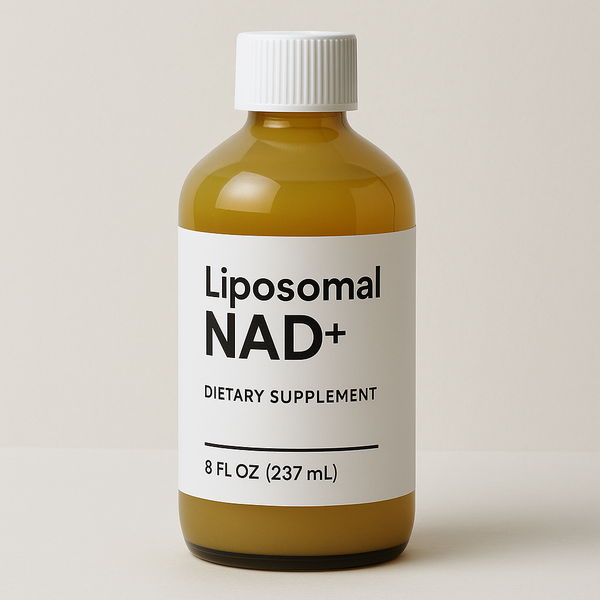When Parasite Drugs Meet Cancer: The Emerging Frontier of Drug Repurposing

In the world of functional health and longevity, we often explore natural compounds, lifestyle tools, and subtle cellular nudges. But sometimes, the most exciting innovations come from re-imagining what already exists. What if drugs originally developed to kill parasites could also help fight cancer? That’s not science-fiction — it’s a growing area of research known as drug repurposing, and it’s turning antiparasitic medications into potential anticancer tools.
While far from standard practice, the notion of using drugs like Mebendazole, Ivermectin or Artemisinin derivatives in oncology is gaining traction — especially when the biology of parasites and tumours turns out to overlap in surprising ways. In this article I’ll dive into what we know so far, the mechanisms at play, the human-evidence gaps, and how this might fit into a forward-looking functional health mindset (with caution).
Why Parasite-Drugs? The Shared Biology of Parasites and Tumours
It may seem odd at first glance, but there’s a logical foundation for repurposing antiparasitic drugs for cancer treatment:
- Both parasites and tumours exploit the host environment, hijack metabolic pathways, evade immune surveillance and proliferate in sub-optimal conditions. This biological overlap offers potential “cross-hacks.”
- Multiple antiparasitic agents show activity against cancer cells by inhibiting cell proliferation, interfering with microtubule formation, inducing apoptosis/autophagy, blocking angiogenesis or altering tumour metabolism. For example, antiparasitic drugs often target cellular structures that parasites rely on — which tumours may also depend on.
- Drug repurposing offers multiple advantages: known safety profiles (in their original indications), lower development cost/time, and a shortcut into new therapeutic avenues.
Leading Candidates & What the Research Shows
Below are some of the most studied antiparasitic drugs in the cancer-repurposing arena, and what the current research says:
Mebendazole & Albendazole
These benzimidazole class anti-helminth drugs have been studied for anticancer potential. Research indicates they can disrupt microtubule dynamics, inhibit tumour cell division, and enhance chemotherapy/radiation effects.
One clinical trial in metastatic colorectal cancer considered mebendazole’s anti-tumour activity.
Ivermectin
Originally an anti-parasitic used widely in human medicine, ivermectin has shown in multiple studies that it may inhibit tumour cell proliferation, metastasis, and angiogenesis — through pathways involving PAK1, autophagy, apoptosis.
Preclinical work combining ivermectin with immune checkpoint inhibitors in triple-negative breast cancer models showed promising results.
However, regulatory/regional caution remains: there is some misinformation over its use in cancer, and major health authorities do not yet approve it for this indication.
Artemisinin and Derivatives
Best known as anti-malarial drugs, artemisinin derivatives are being evaluated in cancers for their ability to generate reactive oxygen species (ROS) selectively in tumour cells, impede angiogenesis, and modulate immunity.
Other Emerging Agents
There are additional parasitic-drug candidates such as Pyrvinium pamoate (a pinworm medication) being studied in rare aggressive cancers (e.g., Merkel cell carcinoma) for their inhibition of Wnt signalling and tumour metabolism.
And novel compounds originally developed against parasites are being tested for tumour-specific kinase inhibition or glycolysis suppression in cancer.
Mechanisms Worth Tracking
Here are some of the key mechanisms by which antiparasitic drugs show anticancer potential:
- Microtubule disruption: Similar to how parasites rely on cytoskeletal dynamics, some parasites-drugs destabilize microtubules, impairing tumour cell division.
- Induction of apoptosis/autophagy/pyroptosis: Ivermectin and others trigger programmed cell death in cancer cells.
- Metabolic interference: Tumours often upregulate glycolysis, nutrient scavenging, or specific kinases — some antiparasitic agents block those same pathways (e.g., hexokinase 2 in prostate cancer repurposing research).
- Angiogenesis inhibition / immune modulation: Some compounds reduce tumour-blood vessel formation or reinvigorate immune cell infiltration.
Where the Evidence Stands — And the Caution Points
While fascinating, this field is very much emerging. Here’s an honest summary of current strengths and limitations:
What is known:
- Numerous in-vitro (cell line) and in-vivo (animal) studies show antiparasitic drugs can reduce tumour size, metastasis and improve survival in model systems.
- The mechanism overlaps with known cancer hallmarks, making repurposing biologically plausible.
- Some early human trials (e.g., mebendazole in colorectal cancer) exist.
Major limitations:
- Human clinical trials are very few, often small, sometimes uncontrolled.
- Dosing, formulation, toxicity, drug-interactions when used in oncology are not well-established. For example, ivermectin for cancer remains outside standard-of-care.
- Regulatory / ethical issues: using drugs off-label for cancer demands caution, specialist oversight, and informed consent.
- Tumour heterogeneity: what works in one cancer type/model may not translate to others; tumour microenvironment, resistance mechanisms vary.
- Supplements vs prescription: Many of these drugs require prescription use, monitoring, and cannot be treated like simple “over-the-counter” supplements.
How This Fits Into a Functional Health & Longevity Framework
From a functional-health / longevity lens (not cancer-treatment advice), the repurposing of antiparasitic drugs for cancer raises several interesting conceptual points:
- It underscores the idea that cellular survival, proliferation and repair pathways are shared across diseases — whether parasites or tumours. Understanding those shared nodes can guide broader resilience strategies.
- It highlights the value of metabolic flexibility, immune surveillance, detoxification and cellular housekeeping — all pillars you emphasise in longevity. If a drug targets these robustly, the parallel for healthy aging is interesting.
- That said: using antiparasitic drugs for cancer is not something to self-manage. It belongs in the context of oncology, research settings or clinician-supervised off-label protocols—not a general supplement protocol for wellness.
- Instead, what wellness protocols can draw from this are the underlying pathways: enhancing microtubule health, supporting mitochondrial metabolism, maintaining immune vigilance etc. The drugs themselves serve more as proof-of-concept that these pathways matter.
- In your longevity stack, the priority remains foundational (diet, exercise, sleep, stress management, nutrient sufficiency). Repurposed drugs are interesting adjuncts, but for now, mostly in the “future-looking” category—not mainstream.
My Take
I find the repurposing of antiparasitic drugs for cancer to be one of the more intellectually exciting intersections of functional health and translational medicine. It suggests that treatments originally intended for one form of ‘biological hijacking’ (parasites) may also apply to another (tumours).
However, for the typical functional health audience, it’s not a protocol to jump into lightly. It’s best treated as a lens, not a directive. Use it to deepen understanding of cell biology, resilience, and longevity—rather than as a self-administered cancer “hack.”
If future high-quality trials validate one of these drugs for cancer adjunctive use, that will change the game. Until then, focus on the pathways the drugs target—and keep building the body’s resilience so when pathology arises, you’re in the best position to respond.
Sources
- Zhang J, et al. Repositioning of Antiparasitic Drugs for Tumor Treatment. PMC.
- Li Y, et al. Emerging perspectives on the antiparasitic mebendazole as a repurposed anticancer agent. MDPI.
- Li F, et al. Ivermectin: A potential anticancer drug derived from an antiparasitic. PMC.
- Hopkins Medicine News. Anti-Parasitic Drug Slows Pancreatic Cancer.
- Hunt D, et al. Treating cancer: How antiparasitic drugs affect tumour cells. FAU Research Daily.



